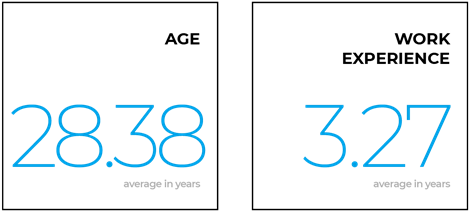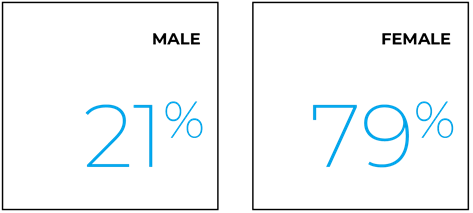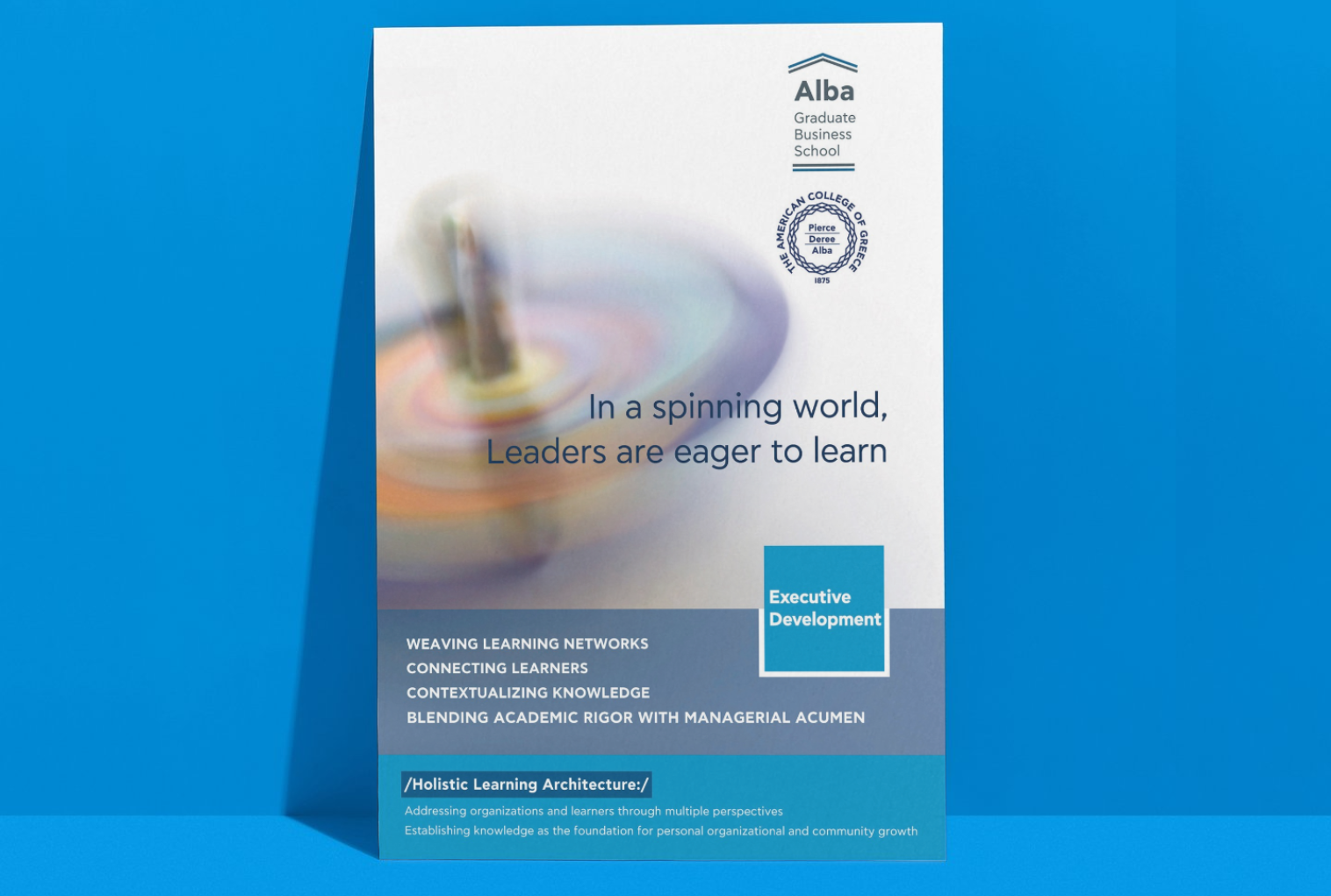MSc in Strategic HRM
UNLEASH PEOPLE TALENT AND FULL POTENTIALOVERVIEW
Human Resource Management is currently one of the fastest-growing management fields. Organizations are increasingly recognizing the strategic role of human capital in achieving significant business results, sustainable growth, and innovation. Our vision is to develop managers with a sharp insight on people issues who will act as agents of transformation and as strategic investors in their organizations’ human capital. HR professionals can make a critical contribution to the process of business value creation. If you share this vision and aspire to play such a role in your organization, our program can help you reach your goals.
The MSc in Strategic HRM Is Designed for:
- The new generation of HR professionals that will act as strategic partners and effectively align people strategies with business strategies.
- Other professionals in managerial positions who will strategically lead their organizations' human capital and act as coaches to unleash their people's talents and full potential.
- Strong applications from recent university graduates who wish to launch their career in the HR field will also be considered.
Investment in Human Capital pays off:
- Those companies with a highly engaged workforce improved operating income by 19.2% over a period of 12 months, whilst those companies with low engagement scores saw operating income decline by 32.7% over the same period (Towers Watson).
- The lost productivity of actively disengaged employees costs the US economy $370 billion annually (Gallup Institute).
- 70% of Chief Executive Officers consider talent management top strategic priority and believe talent retention is a struggle (PwC Annual Global CEO Survey).
- 53% of CEOs see skill shortage for key positions as a major challenge (PwC Annual Global CEO Survey).
- 93% of Chief Financial Officers consider human capital as a critical factor for customer satisfaction (Mercer).
Key features of the program
- Weekday classes between 18:00 – 22:00 (and occasionally weekends), five times a week on average for full-time students and two to three times per week for part-time students;
- Assessment: group reports/presentations, case study analysis, mid-term tests, final exams (typically 18:00 – 21:00);
- 13 core courses and 6 workshops;
- Dissertation or Internship or Elective courses;
You may find here more information about the Program's Intended Learning Outcomes.
Current Student Profile


HIGHLIGHTS
International Recognition:
- Accredited by The New England Commission of Higher Education (NECHE)
- EFMD Accredited
- Acknowledgement for Full Alignment with the Society for Human Resource Management (SHRM) HR Curriculum Guidebook and Templates
More information about the accreditations of ALBA’s academic programs, can be found here.

The quality and academic standing of its faculty, both resident and visiting.
The practical workshops offered within its curriculum in collaboration with field specialists like Korn Ferry / HAY Group. The personal coaching and focus on personal skills through the course of Leadership Development.
The internship opportunities it offers for eligible students, in HR-related positions.
Opportunities to take courses abroad through student exchange agreements with a large network of top Business Schools worldwide.
FULL TIME
MSc in Strategic HRM Program Total Year Schedule 2025-2026
The School reserves the right to re-examine the structure of all Academic Programs and proceed to any necessary changes on the Total Year Schedules.
Elective Courses: Please choose four of the elective courses.
Internship: conditionally upon availability. (This is an option provided only to Greek and EU students. According to Greek labor and immigration law, international VISA holder students are not permitted to do an apprenticeship in Greece. Alternatively, they can access global internship opportunities through the international job portals provided by Alba’s Career Office.)
You may find the Graduate Academic Calendar 2025–26 here.
1st Period | Fall 2025
Managing People & Organization
2
The course provides an overview of the core areas of management theory and organizational behaviour with a special emphasis on issues of organizational structures, culture and values, employee motivation and job design, leadership and power, group processes as well as organizational learning and knowledge management. It will help participants understand the complex relation between individuals, groups and organizations and will introduce the concepts and the tools for effective management of the human capital. It will also help them understand how they can become change catalysts by performing their leadership role as managers; how they can manage knowledge; how they can inspire people to put extra effort for achieving the organizational vision and for outstanding performance and results. Through case studies, videos and discussion, students will have the opportunity to exercise their critical thinking and build people management skills by applying organizational theory to a broad range of organizational types, settings, and challenges.
Understanding the Business Context
2
The course consists of two parts: The first part provides in-depth and systematic knowledge of the economic environment of the company, the labor market, the major elements behind labor demand and labor supply, and the main economic issues that relate to the HR function of the firm. The analysis also expands on the economic rationale of HR practices related to evaluation, reward, compensation and promotion in the company. It is also analyzed how different types of labor markets have an impact on the optimal living policies of a company. The second part provides an understanding of the role of accounting and finance function in a business organization. It also enables students to assess the financial implications of key functions and decisions made by the HR Department and estimate the relevant costs and benefits generated by investment decisions of the firm.
Employee Selection and The War of Talent
2
The course provides an overview of basic principles of selection and recruitment, as well as the current trends in that area. It will emphasize the value and the strategic implications of good selection for an organization and it will explain concepts and selection tools, such as job analysis and psychometric testing, interviews, CVs, references etc. It will also cover issues such as on-line recruiting and winning the war for talent, i.e. how companies can attract and retain the best people. An interviewing skills workshop, will complement the knowledge gained through this course and will provide students with skills on preparing, delivering and evaluation a selection interview.
Research Methodology & Statistics
3
Research Methodology and Statistics comprise a wide set of tools and procedures that allow organizations to develop a more systematic understanding of the nature and characteristics of their internal and external environments and any problems or issues associated with these. The course aims at providing students with actionable knowledge over the tools and procedures of business research so as to allow them devise and run organization-wide research projects. The knowledge from this class will help inform students how to read and understand research reports, analyze and interpret results, prepare a research design, and finalize a research project. Students will also demonstrate their grasp of the fundamentals of research by developing and presenting the results of a comprehensive research project. Students will conduct their research by developing a management dilemma - research question(s) hierarchy, an appropriate research design (with hypothesis testing), and by collecting data, conducting the data analyses, and presenting the findings and conclusions.
Labor Relations & the Legal Aspects of HRM
1
This course explores issues on trade unions (e.g., structure, environment and impact) and the negotiation processes, as well as collective bargaining agreements (e.g., management rights, union security, dispute resolution) established between management and trade union members. Legal issues of HR will also be presented by Greek Law practitioners.
Assessing Behaviors in the Workplace Workshop
0.5
This workshop will train participants in Focused Behavioral Interviewing (FBEI), one of the most reliable methods in assessing behaviors in the working environment. They will have the chance to learn and practice on the methodology of FBEI, under the close guidance of experienced practitioners.
Business Writing
0.5
The purpose of the workshop is to address the question ‘what is the skill of writing?’. According to the American writer Edwin Schlossberg, “the skill of writing is to create a context in which other people can think”. The workshop explores this statement. This exploration and subsequent understanding is of paramount importance for any business activity, since much of the communication in the business world takes place in writing, usually within tight deadlines, ranging from short, simple e-mails to long, rich documents. The salient gain of the participants from the workshop is the understanding of different modes and purposes of writing, as well as of different types and purposes of documents. The main topics covered during the workshop include: the requirements of different types of documents, such as reports, case studies, research papers and proposals, proper referencing, and the research process.
2nd Period | Winter 2026
Strategic Performance Management: Rewards Management
2
This course focuses on the strategic importance of total compensation and its relevance for achieving sustainable competitive advantage. It will cover major compensation issues and real-business applications that illustrate new developments in compensation practices as well as established approaches to compensation decision making. Attention is given to the changing nature of compensation and benefits, changing expectations of employees and competitive needs of employers and evolving trends in performance and pay realignment to the strategic objectives of the organization. The course provides an understanding of approaches to employee rewards management within the context of Business Strategy and Human Resources Strategy, balancing choices and consequences. It also offers a comprehensive overview of integrated compensation elements, how they link, what they drive and the techniques to manage them. The course provides each student with an experiential opportunity to develop the subject-specific skills necessary to design and understand the performance based compensation and benefit programs for their organization.
Training, Development, and Performance Management
2
This course will examine the role of employee training and development and performance management for organizational competitiveness. The first part of the course will cover training needs assessment, design and delivery of training programs, and assessment of training program effectiveness. In the second part, students will learn the basics of designing effective performance appraisal and measurement systems as well as the delivery of performance feedback as tools for managing employee performance.
Leading & Managing Change
1.5
In today's rapidly changing business environment, companies must constantly adapt to change in order to survive and prosper. This course aims at offering students the knowledge and skills they will need to face the challenges of organizational change. It examines the innovative and adaptive capabilities of organizations, the reasons people may resist change, and introduces models of the change process and how it could be managed effectively. The course focuses on specific concepts, theories and tools of change management and identifies common mistakes, pitfalls and reasons of failure for change initiatives as well as the factors underlying the successful management of change projects.
Job Evaluation Workshop
0.5
Through the years, Job Evaluation methodology has been widely used to analyse, clarify and value work within organizations, with a primary aim to link the measured contribution of jobs with pay arrangements. Nowadays, the extended know how consolidated through the study of a significant variety of organizations, provide Hay Group with the insight to move forward. The systematic mapping of roles and structures through the elements of Job Evaluation, reveals a new perspective for identifying bottlenecks and gaps in organizations. Through the advanced application of job evaluation, areas for improvement interventions can be spotted to ensure optimization of hierarchical and lateral synergies. This course is intended for individuals who want to build on the Job Evaluation skills, as well as learn the linkages of Hay Job Evaluation to other HR functions. As such it is designed for professionals who are accountable for valuing work in their organizations, including compensation management, organization effectiveness and Human Resources development.
Activating Personal Agility Workshop
0.5
In today’s constantly shifting world, agility is a key component of success. Participants of this program will get the self-awareness needed to adopt agile behaviors and the tools and principles to activate agility, in themselves. This program will provide you:
- a definition of agility and the business case for agile behavior
- an understanding of the brain science behind our behavior and what gets in the way of agility
- the identification of personal values and their role in agility
- techniques for building resilience and becoming more agile
- an understanding of your strengths against five core factors of agility and strategies for building on those.
People Analytics
1
Success in the contemporary HR profession heavily depends on the ability to process and analyse data in order to give responses and make decisions. The module aims at providing students with the fundamental principles of people analytics in the context of human resource management. Using practical examples from large organisations, the module will help you to understand what people analytics is and how it can be used to address organisational challenges through HR data analysis and to critically assess outcomes in light of practical HR problems. The module will also help students to explore how People Analytics specifically and technology and Artificial Intelligence (AI) more generally are used in different functions of HR, including selection and recruitment; assessing engagement and performance; and when examining issues related to exiting the organisation such as turnover and redundancies. Building on DS255- Research Methodology & Statistics module and using SPSS we will examine how People Analytics is used to respond to such organisational issues
Sustainability Business Ethics & CSR
1
Understanding the ethical basis of human behaviour is of fundamental importance for building commitment to organizational goals and for imparting integrity and a sense of the common good in organizational members. The course examines a broad array of matters relating to ethics, including: individual and organizational obstacles to ethics; ethics information processing methods and judging theories; an action-learning framework for ethics leadership; adversarial win-lose ethics methods; integrative win-win ethics methods; dialogic transcendent ethics method; reflection and developing personal and contingency ethics leadership approaches; developing on ethics leadership action-learning plan. The course focuses also on sustainability, corporate social responsibility and corporate accountability with further emphasis placed on business strategies that aim to create long term value and a positive environmental, social and economic impact. Actionable knowledge is achieved by applying theory in real life situations through critical analysis and debating on prominent cases and in class discussions on current trends and developments on sustainable business activities.
International HR Strategies
1
The course focuses extensively on the role of the HR department as a core strategic player in the management board and on how an organization can achieve competitive advantage through people by building HR competencies and capabilities. An overview of several models of International Strategic HRM will be provided, such as the business-oriented and the strategic fit model, but the emphasis is on its practice, i.e., on formulating, implementing and evaluating an HR strategy and the processes by which S-HRM strategies reflect back and advance the general corporate strategy.
3rd Period | Spring 2026
Leadership Development
1
Becoming an effective leader is hard work that takes much more than learning the latest leadership theories. It is about transforming ourselves. The primary objective of this course is to guide you through a process of self-exploration and skill-development that can facilitate your personal growth, fulfilment of your true potential and future success in the career of your choice. This course aims to develop your knowledge and understanding of key concepts, processes and practices of leadership, introduce you to trait-based and behavioral approaches and further focus on authentic, relational, transformational and charismatic leadership perspectives. It will heavily emphasize aspects of leadership and leader identity development and will help you embark on a journey of inner growth and self-awareness. You will identify personal strengths and areas of development as well as take a deep look in the future, articulate a vision for yourself and unfold future possible selves and directions. The course will heavily rely on experiential learning, i.e., group exercises, role playing and fun activities that will draw on your personal experiences from your own life. Also, a very important component of this course are the group coaching sessions that will be conducted by professional coaches (outside regular teaching hours) and will help you interpret the feedback from your various assessments and put things together into a coherent and dynamic learning plan for the future. You will be expected to be open and hones to your self, your professor, coaches and fellow students as many of the exercises involve sharing personal feelings, thoughts, aspirations, values and fears.
Strategic HR
4
Managing human resources is becoming increasingly important as a result of globalization, and rapid technological, economic, social and workforce changes. To manage human resources strategically, ethically and effectively, students must be knowledgeable about the key concepts and techniques as well as the controversies and challenges facing organizations in the process of effective people management. This is often considered as the single most important organizational asset and a potential source of competitive advantage. The course introduces students to strategic human resource management as a field of theoretical study and professional practice. It examines topics such as the nature of HRM, its vital link with business strategy and the impact on organizational and employee outcomes, high performance work systems and the problem of diffusion. It is focused on the application of strategic management theories such as the resource-based view of the firm and institutional theory on the strategic management of human resources. The course aspires that students comprehend the complexities associated with the strategic management of HRM and are capable of evaluating why and how HRM contributes to organizational performance through its ‘soft’ and ‘hard’ versions. Students will also be expected to grasp the ‘critical’ view of people management in organizations and discuss relevant challenges and recommendation.
Diversity Management Workshop
0.5
Diversity is a key feature of modern organizations that manifests itself in various forms, from personality and work style to all of the visible dimensions such as race, age, ethnicity or gender, to secondary influences such as religion, socioeconomics and education. The management of diversity has evolved from handling anti-discrimination compliance issues to leveraging diversity for competitive advantage. Today the impetus behind workplace diversity is that of inclusion and the business case, i.e., embracing and leveraging differences for the benefit of the organization. Research has shown the link between diversity management and a series of organizational benefits, such as talent attraction and retention, creativity and innovation enhancement, capitalization of broader markets and access to diverse customer bases, organizational flexibility and learning. The workshop summarizes the evolution of diversity and inclusion management in organizational contexts, helps students become aware of their own biases and stereotypes and outlines key diversity management practices for building an inclusive organizational culture.
Elective Courses: Please select 4 of the following
*
In Search of Phronesis
1
This course explores in some detail Aristotle’s concept of phronesis and seeks to link it with contemporary theories of human judgment and leadership. It does so through the study of some classic pieces of literature and philosophy. The human condition is characterized by contradiction, conflicting loyalties and priorities, is plagued by meaninglessness and a sense of throwness. To lead other human beings one needs a high degree of maturity, an intuitive grasp of the human condition, and a developed sense of judgment, all of which are uniquely dealt with in art and philosophy, especially in Greek tragedies and the works of Shakespeare. Similarly, great pieces of contemporary literature are wonderful guides to explore the complexity of the human condition and its implications for leadership.
Negotiations
1
In the wide sense of the term, negotiating with others (both partners and rivals) is a necessary feature of all managerial jobs. In this course students are introduced into the fundamentals of effective negotiations: how to think strategically, what tactics to engage in, and what goals to aim at. The objective of this course is to improve participants’ ability to avoid traps in negotiations and help them see their range of rational options (and their ramifications) in particular situations. The course is designed to provide participants a conceptual framework for preparing and conducting negotiation, and to give them some experience in using this framework.
Emotional Resilience and Adaptability
1
In the current work environments that are often characterized by volatility, uncertainty, complexity and ambiguity, the ability to effectively manage emotions, readily adapt and bounce back from adversity is more important than ever for managers. In addition to emotional intelligence skills that have long been recognized as imperative in the workplace, emotional agility, emotional resilience and adaptability emerge as key skills that can help managers navigate current challenges and assist them to build resilient teams and organizations.
This course will examine the role of emotions in the workplace and the processes by which people can identify and manage their emotions constructively. It will further examine the key conditions for human flourishing at work in times of adversity, such as authenticity, a growth mindset, positive psychological capital, grit, compassion and high quality relationships. During the course, special emphasis will be placed on the development of emotional agility, emotional resilience and emotional intelligence competencies such as self-awareness, adaptability, empathy and relationship management. Participants are expected to be open and honest to themselves, the teacher and the fellow students as many of the exercises involve sharing personal feelings, thoughts and experiences.
Entrepreneurial Flexibility
1
The objective of this intensive workshop is to introduce the theories and practices required to master the post start-up phase of entrepreneurship, focusing on survival techniques, growth strategies, and modern approaches such as pivoting, and co-opetition. Exit options, and dealing with entrepreneurial failure, will also be covered. The emphasis on the workshop is on combining the latest theory with mini-cases, class exercises, and other forms of real life example. It is anticipated that the content of this class will form an additional conceptual underpinning for the Entrepreneurship Team Field Project.
Coaching Skills: Help Yourself and Others Reach their full Potential
1
The course is addressed to HR professionals who wish to develop their leadership skills and become catalysts for change in their organizations. The course is split in a theoretical part and a practical part. The theoretical part engages participants in a discussion about the different coaching tools and techniques, the core coaching competencies, and the code of ethics. In the practical part, participants have the opportunity to put theory into practice through the use of case studies and peer coaching sessions.
By the end of the course participants will be able to lead coaching conversations, develop their coaching and leadership skills and help reinforce a coaching culture at their organizations.
The Future of Work
1
This course examines the impact of technological advancements, economic factors, changing demographic patterns and shifting societal norms on the organization of work. Developments related to the aforementioned factors are discussed, as well as their repercussions on the labour market, competencies in demand and emerging working models / forms of work. The scope of intervention of alternative stakeholders (institutions, organizations, individuals) in ensuring decent and sustainable work is contemplated. The strategic role of Human Resources is emphasized in terms of:
- designing and implementing organizational interventions that enhance the organization’s adaptability to the environment
- leveraging traditional and emerging forms of employment
- developing learning and development programs that support the workforce through transitions
The aim of the course is to develop increased awareness and fluency on the aforementioned issues. This aim is to be achieved through a synthesis of theoretical insights, practical examples and the co-creation of knowledge through independent search of relevant resources and group discussions.
Dissertation
4
The Dissertation is an independent research project that allows students to explore a topic of personal interest within a faculty member’s area of expertise. Throughout the process, students will develop essential research skills, including designing a detailed research plan, conducting a comprehensive literature review, identifying key research questions, and transforming them into empirical inquiries. They will learn to justify and apply appropriate research methodologies, analyze financial or social data, and synthesize their findings into a well-structured report. The final dissertation will include a literature review, research questions, methodology justification, data analysis, and a discussion of findings in relation to existing research and methodological considerations.
Internship
4
An Internship brings together the academic with the business world, providing benefits both to students and to companies. It has the status of a course, hence it is an obligatory requirement for the fulfilment of the M.Sc. Degree, it carries credits and it is graded. The expected duration is three (3) months, from beginning March to end May.
The benefits for students include the opportunity for the blending of academic and on-the-job learning; the use of the explicit knowledge gained during the program, the attainment of tacit knowledge, the development and diversification of skills, the acquisition of work experience, the identification and/or refinement of career goals, the creation and/or development of a professional network. The benefits for companies include the opportunity to meet some company needs with highly qualified and motivated students, the identification of talent for potential future employment, the enrichment of current perspectives and practices with the intern’s novel ideas, the enhancement of social responsibility activities.
PART TIME
MSc in Strategic HRM Program Total Year Schedule 2025-2027
1st Period | Fall 2025
Managing People & Organization
2
Employee Selection and The War of Talent
2
Assessing Behaviors in the Workplace Workshop
0.5
Business Writing
0.5
2nd Period | Winter 2026
Strategic Performance Management: Rewards Management
2
Training, Development, and Performance Management
2
Job Evaluation Workshop
0.5
Activating Personal Agility Workshop
0.5
International HR Strategies
1
3rd Period | Spring 2026
Leadership Development
1
Strategic HR
4
4th Period | Fall 2026
Understanding the Business Context
2
Research Methodology & Statistics
3
Labor Relations & the Legal Aspects of HRM
1
5th Period | Winter 2027
Leading & Managing Change
1.5
People Analytics
1
Sustainability Business Ethics & CSR
1
6th Period | Spring 2027
Diversity Management Workshop
0.5
Elective Courses: Please select 4 of the following
*
In Search of Phronesis
1
Negotiations
1
Emotional Resilience and Adaptability
1
Entrepreneurial Flexibility
1
Coaching Skills: Help Yourself and Others Reach their full Potential
1
The Future of Work
1
Dissertation
4
Internship
4
FACULTY

CAREER
Upon the completion of the Program students will be able to:
- Communicate effectively using a range of media;
- Manage time effectively, demonstrate initiative and personal responsibility for their work;
- Work effectively as part of a team;
- Demonstrate self-awareness and the ability to reflect on experience and to plan and carry out continuous personal development.
SCHOLARSHIPS
You can secure pre-approval of your scholarship, before you apply for admission to the MBA or MSc program of your choice.
GMAT Scholarships
Scholarships of 40% for MBAs and MSc programs for GMAT ≥ 645
Theodore Papalexopoulos Scholarship
Partial scholarships, based on a combination of academic/professional excellence, high academic & professional potentials and presence of financial need.
Ulysses Kyriakopoulos Expendable Scholarship
Partial scholarships, based on a combination of academic/professional excellence, high academic & professional potentials and presence of financial need.
The Chris Argyris Scholarships
Two (2) partial scholarships amounting to 50% of total tuition fees for various MSc Programs, based on a combination of academic performance & potential.
Next Generation Family Business Scholarship
One (1) merit-based partial awarded to a member of the next generation of a family business for several MBA & MSc programs
SEV (Hellenic Federation of Enterprises) Scholarships
Partial scholarships of 50% to Enterprises members of SEV, offered as rewarding services to the members of the Federation.
ADMISSION REQUIREMENTS
To be considered for admission, candidates must:
- Hold a bachelor degree;
- Provide evidence of excellent command of the English language;
- A minimum GMAT (Focus Edition) score of 515 or above (or a GRE score of 155 or above) will strengthen the application for the MSc in Strategic HRM program. In cases of “weak” academic background and after the faculty evaluation of the application file, the Academic Committee reserves the right to conditionally accept an applicant for the MSc in Strategic HRM program, upon submitting a GMAT score of 515 and above (or a GRE score of 155 and above) before registering.
Candidates must submit:
- The completed application form, including one recent photograph in jpeg format;
- Two letters of recommendation, in Greek or in English language;
- Official academic transcripts as well as certified copies of degrees from each undergraduate, graduate or professional degree earned;
- Proof of competence in the English language (unless schooled in English): Proficiency (Cambridge Proficiency, Michigan Proficiency, MSU Proficiency), or TOEFL, or IELTS, or Duolingo English Test;
- Three essays, as indicated in the Application form;
- Receipt of the non-refundable application fee's [€60] deposit.
Click here to download the details for admission.
For details on academic policy, course credit policy, fee policy, and rules for student conduct, please refer to the Student Handbook .
Additionally, the School's Students Code of Conduct can be found here.
REQUEST A BROCHURE
CONTACT

We urge applicants to request further information or to come for a meeting at our downtown campus, in order to better understand their profile and motivation.
Just fill out and submit the form below and we will respond to you as quickly as possible.
Tel.: +30 210 89.64.531 ext. 2289
e-mail: [email protected]















